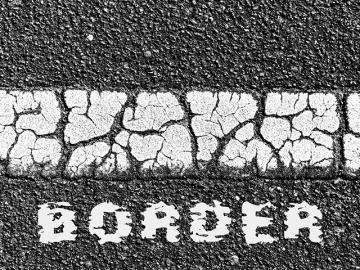Experts from national human rights institutions and representatives from selected European Union (EU) entities and international organisations met in Vienna to discuss issues around the operationalisation of FRA’s 2022 guidance. The discussions built on the long-standing experience of bodies and agencies engaged in relevant monitoring and protection work. FRA developed this guidance at European Commission’s request, following the proposed screening regulation of 23 September 2020 and consultations with a range of stakeholders.
Monitoring compliance with fundamental rights is particularly important for activities which take place in locations where the public has limited or no access, such as EU land and sea borders. It is also important to bear in mind the increasing number of actors involved. An effective and independent fundamental rights border-monitoring system reduces the risk of fundamental rights violations.
Participants welcomed FRA’s guidance as a useful tool to guide the setting up, strengthening and functioning of effective and independent national border monitoring systems. At the meeting there was consent that the guidance strikes a good balance between covering relevant aspects of border monitoring and remaining concise.
The discussions with experts highlighted a series of issues. These need to be considered when operationalising the FRA guidelines, including the following:
- A holistic approach to upholding fundamental rights at borders should guide the establishment of national independent border monitoring mechanisms. This includes ensuring coherence, complementarity, and synergies between different bodies entrusted with the protection of fundamental rights.
- National human rights institutions and national preventive mechanisms have a long-standing experience in monitoring human rights compliance in different settings. Their capacity and expertise should be duly considered when establishing national monitoring mechanisms. These actors may already have a legal mandate to monitor fundamental rights at borders. They may be best placed to carry out this task, provided they have commensurate resources.
- Monitoring activities should always respect the “do no harm” principle. Such activities particularly need to take into account that asylum seekers and migrants at borders are in a vulnerable situation. They are also exposed to risks.
- The importance of new technologies increases in border surveillance. This will require protocols to access information and data from surveillance assets. Such protocols are relevant for effective fundamental rights monitoring. Monitoring entities will increasingly need expertise in adequately understanding information technology (IT) systems.
- In many situations, resources for border monitoring are limited. Participants recognised the added value of tools that enable the monitoring entity to carry out fundamental rights risk assessments. This would enable targeted monitoring visits.
- National security considerations may render the work of monitors at borders more complex and challenging. This aspect may need to be considered when deciding which tools and methodologies to use for monitoring in a particular national context.
The expert meeting also highlighted the importance of ensuring that border management staff at operational level receive clear guidance on how to carry out their daily tasks in compliance with fundamental rights. Moreover, it reiterated the need for prompt, effective and independent investigations of alleged rights violations.
